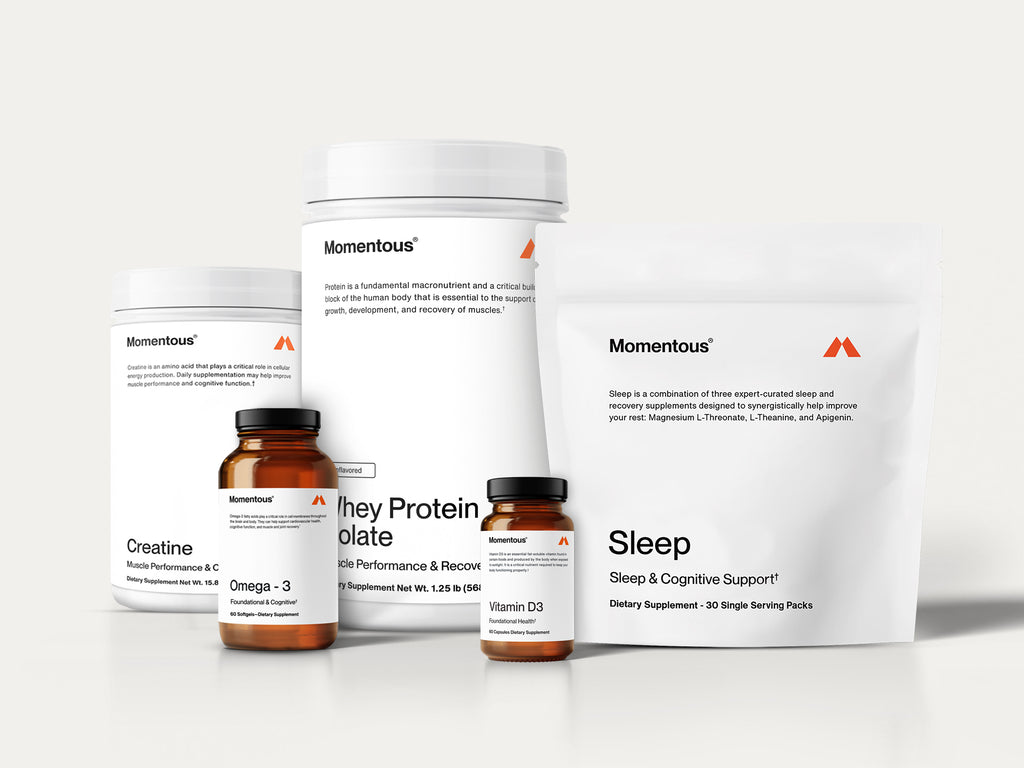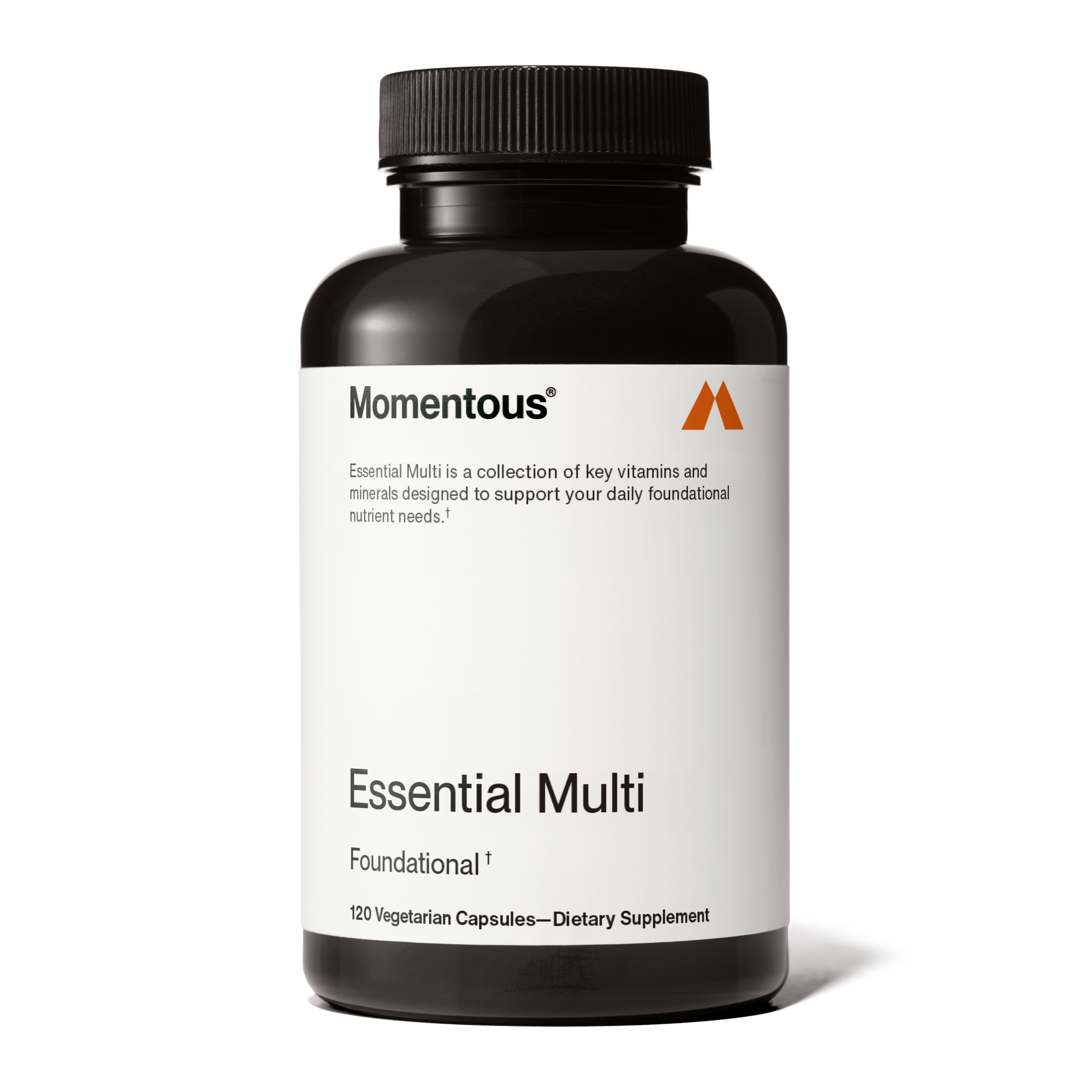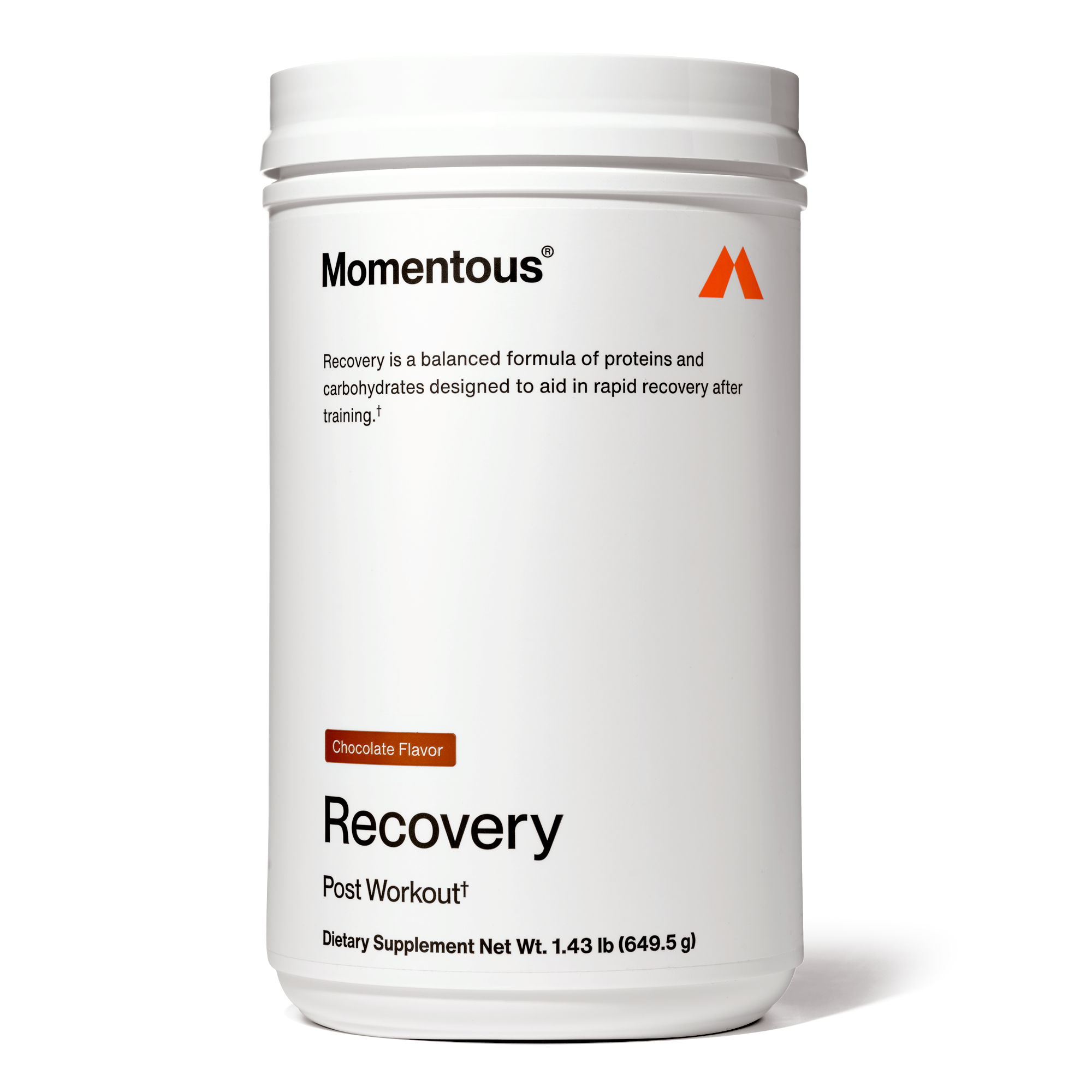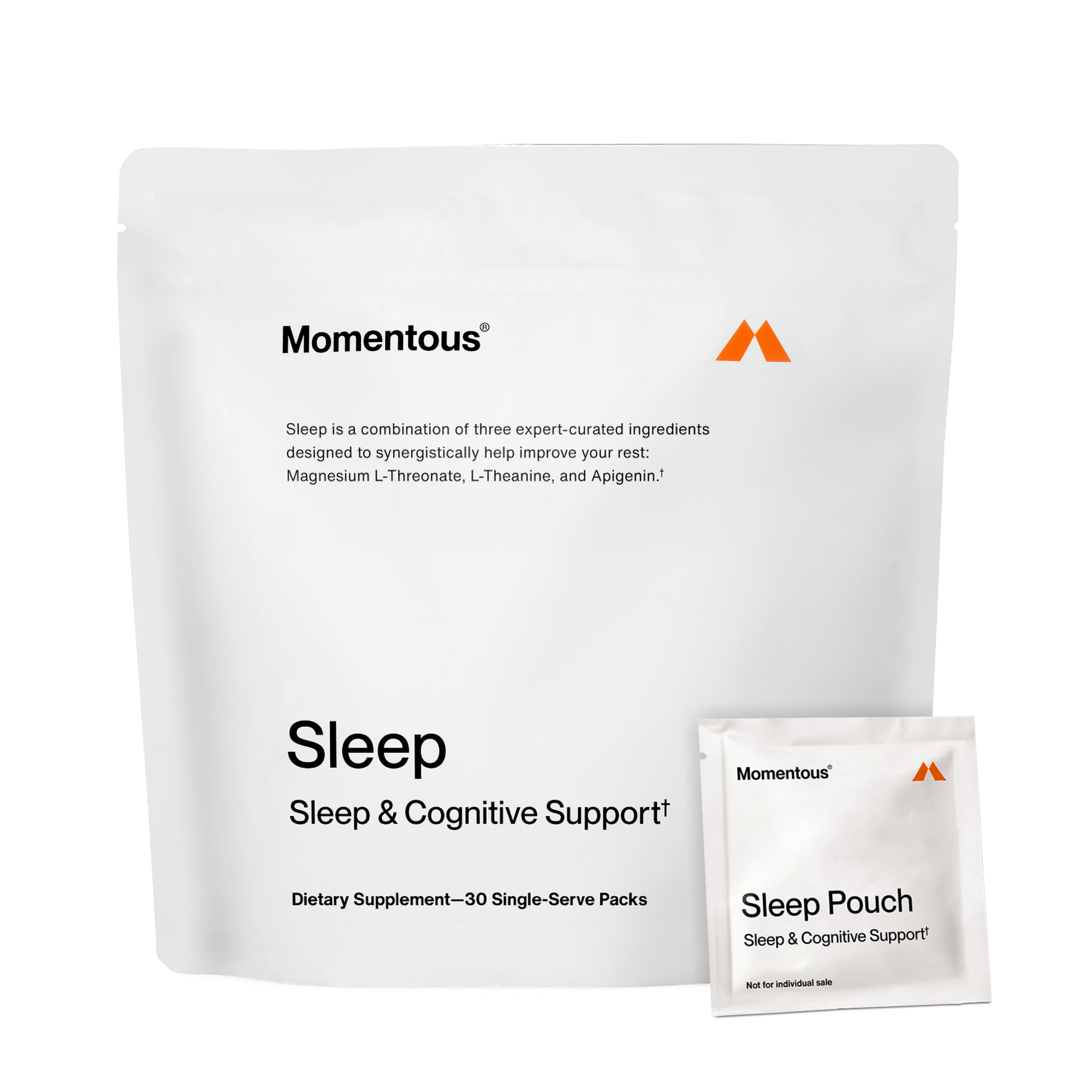Foundational Health
Athletic Performance, Muscle Recovery
A science-backed blend to help optimize your nightly rest
As athletes, we are trained to avoid inflammation at all costs. To perform at our best, we need our bodies to be at their best, and inflammation can get in the way of our quest to optimize our fine-tuned machines. But what if how we think about inflammation is all wrong? What if instead of avoiding inflammation, we embrace it as the body doing its job to repair itself? Confused? Good, keep reading.
Inflammation is the immune system recognizing and removing harmful and foreign stimuli to begin healing. When we experience inflammation, our body is telling us something. But to figure out what it’s telling us, we first need to identify the differences between the two types of inflammation: acute and chronic.
Acute inflammation is a natural defense mechanism to help recover from minor injuries, overtraining, or intense workouts. Tweaked an ankle? Skinned your elbow making a dive? Got stung by a bee on a jog? All would result in your body producing helpful and necessary inflammation to ward off the symptoms and propel itself on the road to recovery.
Chronic inflammation, on the other hand, can be much more severe—and undoubtedly detrimental to any athlete’s performance.
Chronic Inflammation Demystified: Causes, Effects, and Management
When the body suffers an injury, the immune system acts to heal the wound or to fight foreign invaders by releasing antibodies, proteins, and blood to the area to remove the damaged tissue and replace it with new, healthy tissue. Acute inflammation is a temporary and appropriate response from your body, encouraging quick healing and recovery. Chronic inflammation is long-term inflammation over many months, even years. The impact of chronic inflammation depends upon the cause of the injury and the ability to heal and repair the damage.
When does inflammation become chronic?
What may start as acute inflammation, your body’s short-term response to injury, can linger if not properly cared for until it becomes chronic inflammation. Swelling, redness, or an open cut may heal on the surface because your immune system releases white blood cells to protect the area and heal damage. When acute inflammation isn’t given the support or time needed to heal, it can linger and become chronic. Beyond untreated acute inflammation, chronic inflammation can also be caused by autoimmune disorders or exposure to environmental irritants.
The effects of chronic inflammation
Typically, chronic inflammation lives under the surface, and the signs are not quite as apparent as acute inflammation. There may not be swelling, bruising, or redness to alert you of the issue. Things like chronic stress, alcohol, obesity, and smoking can worsen the effects of chronic inflammation (1). Chronic inflammation can be widespread or local to the original injury. It can present a bit of a mystery, and you must be a vigilant investigator to decode your body’s messages. However, there are some clues of chronic inflammation you can look out for (2):
- Muscle aches and joint pain
- Fatigue
- Skin issues
- Headaches
- Constipation, diarrhea, or gastrointestinal issues
- Change in weight
- Balance issues
Did you glance at that list and think, yikes, that’s pretty broad? If so, you’re not alone. Keep reading as we help build a game plan to understand and overcome your unique inflammation issues to start healing today.
Living Inflammation-Free: 5 Lifestyle Tweaks to Support Your Healing Process
Tap into Calm
Doctor’s orders: stress less. Stress has inflammatory properties; it activates your sympathetic nervous system and puts you in a constant state of alert. But we’re only human, and a little stress is okay. What’s important is to teach your body to recover from stress so you can bounce back more efficiently, developing resilience to stress. Because, let’s face it, stress happens.
Momentous Turmeric is a plant rich in curcumin, phytonutrients, and a powerful antioxidant that protects the body from free radical damage and helps manage inflammation levels.
Master Stress Resilience
We’re not just talking about recovering from mental stress: intense workouts act as physical stress for your body. Adopting a recovery routine to complement your workout is critical. Stretching, deep breathing, yoga, meditation, and staying hydrated are not just ‘nice-to-haves’— they’re imperative. Take your Recovery as seriously as your performance.
Move Like You Mean It
Exercise and movement are crucial in helping your body heal from chronic inflammation. Aim for daily movement, including aerobic exercise, strength training, cardio, and stretching or yoga.
Try PR Lotion to help expedite recovery and reduce DOMS.
Prioritize Quality Rest
Sleep is the ultimate recovery. Consider your nighttime routine: is it go, go, go until your head hits the pillow? If so, you’re not doing yourself any favors. Our bodies need help transitioning from states of stimulation to states of deep relaxation and sleep. Support your body’s quest for seven to nine hours of high-quality sleep each night by leaving your phone out of reach in bed, taking a warm shower before bed, and keeping your bedroom cool and dark. An eye mask is your new best friend.
Our Sleep Bundle is designed to help you get the very best night's sleep.
Incorporate More Healing Foods into Your Diet
Diet is a powerful tool that can have a positive or negative effect on your body’s ability to heal from chronic inflammation. It’s important to consider foods with anti-inflammatory properties high in antioxidants and polyphenols.
The following anti-inflammatory foods may be solid additions to your diet: olive oil, tomatoes, leafy greens (like kale, spinach, and chard), fatty fish, nuts, and fruits that are high in antioxidants like blueberries, cherries, and oranges (3, 4). Foods to avoid that are known to increase inflammation include heavily processed things like white bread, pastries, fried food, simple sugars (like candy and soda), and processed meats like hot dogs.
Incorporate Essential Multivitamin into your daily routine to ensure you're getting all the nutrients you need.
----
Sources:
1: Nowakowski, A.C. Chronic inflammation and quality of life in older adults: a cross-sectional study using biomarkers to predict emotional and relational outcomes. Health Qual Life Outcomes 12, 141 (2014). https://doi.org/10.1186/s12955-014-0141-0
2: Pahwa R, Goyal A, Jialal I. Chronic Inflammation. [Updated 2022 Aug 8]. In: StatPearls [Internet]. Treasure Island (FL): StatPearls Publishing; 2023 Jan-. Available from: https://www.ncbi.nlm.nih.gov/books/NBK493173/
3: Stromsnes K, Correas AG, Lehmann J, Gambini J, Olaso-Gonzalez G. Anti-Inflammatory Properties of Diet: Role in Healthy Aging. Biomedicines. 2021 Jul 30;9(8):922. doi: 10.3390/biomedicines9080922. PMID: 34440125; PMCID: PMC8389628.
4: Mitali S Mukherjee and others, Effect of anti-inflammatory diets on inflammation markers in adult human populations: a systematic review of randomized controlled trials, Nutrition Reviews, Volume 81, Issue 1, January 2023, Pages 55–74, https://doi.org/10.1093/nutrit/nuac045













